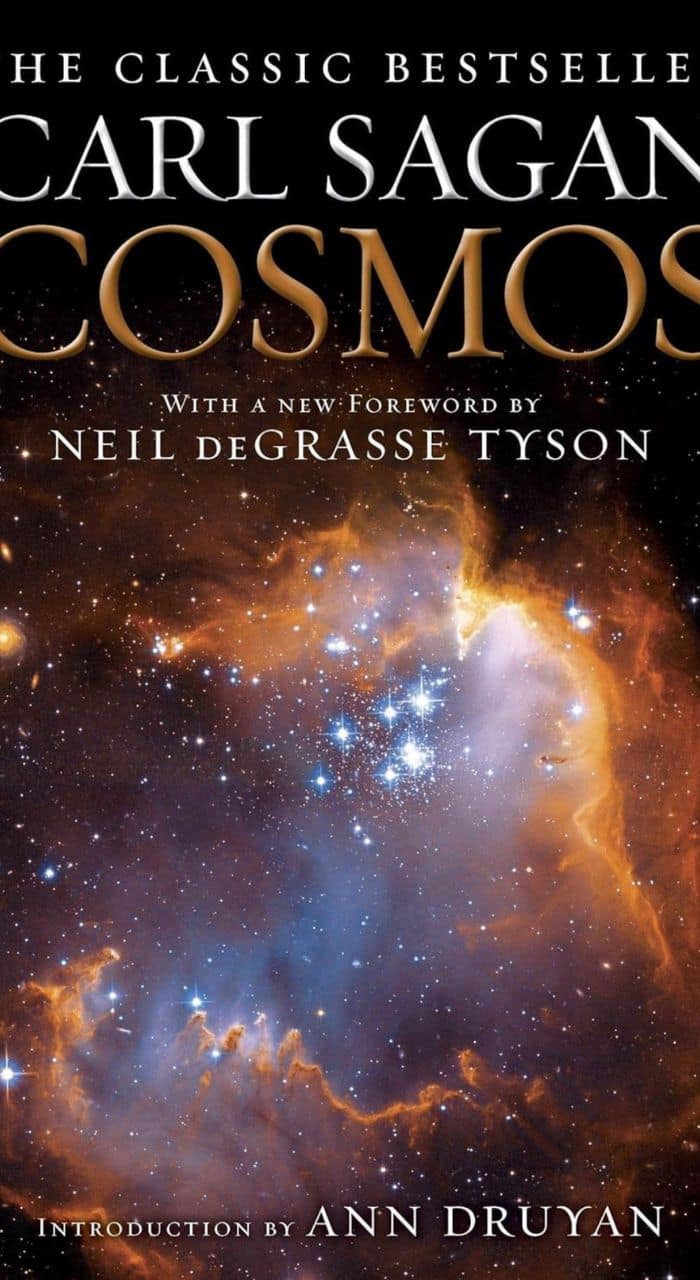
“Cosmos” by Carl Sagan
Cosmos, by Sagan, is a groundbreaking exploration of the universe, bridging science, philosophy, and history, presenting intricate topics like life origins, galaxy evolution, and extraterrestrial life in an awe-inspiring manner.

“Astrophysics for People in a Hurry” by Neil deGrasse Tyson
Tyson’s book simplifies complex astrophysics concepts, from the Big Bang to dark matter, using humor and simple language to guide readers through the universe’s fundamentals.

“The Universe in a Nutshell” by Stephen Hawking
Hawking’s visually stunning and accessible book delves into the mysteries of the universe, including quantum mechanics and time travel, building upon his earlier work, A Brief History of Time.

“A Brief History of Time” by Stephen Hawking
Hawking’s iconic work introduced complex concepts like black holes, time, and the Big Bang to the general public, making it accessible to non-specialists.

“The Martian” by Andy Weir
The Martian is a thrilling novel that follows astronaut Mark Watney, stranded on Mars, using his scientific knowledge and ingenuity to survive, showcasing the challenges of space exploration.

“Black Holes and Time Warps: Einstein’s Outrageous Legacy” by Kip S. Thorne
Kip Thorne delves into the mysterious black holes, exploring time travel through wormholes, space-time nature, and Einstein’s theories, providing a comprehensive understanding of the universe.

“The End of Everything (Astrophysically Speaking)” by Katie Mack
The book by theoretical astrophysicist Mack provides a humorous and insightful exploration of potential universe endings, including Big Crunch, Big Rip, and vacuum decay, combining humor and clarity.
